Michael Castleman
See book keywords and concepts |
 If taste is a problem (many medicinal herbs are quite bitter), add honey or sugar and lemon or mix them with a beverage tea.
Tinctures. These "alcohol extracts" are highly concentrated. Tinctures come in small bottles with eyedropper caps, and a few drops often pack as much medicinal punch as a cup of strong infusion. You can take some tinctures, such as echinacea, straight from the bottle, but most go down easier when added to beverage teas. If taste is a problem (many medicinal herbs are quite bitter), add honey or sugar and lemon or mix them with a beverage tea.
Tinctures. These "alcohol extracts" are highly concentrated. Tinctures come in small bottles with eyedropper caps, and a few drops often pack as much medicinal punch as a cup of strong infusion. You can take some tinctures, such as echinacea, straight from the bottle, but most go down easier when added to beverage teas. |
| A decade ago, most physicians scoffed at medicinal herbs. Some still do. But today, medical journals are publishing more herb research than ever. Consumers, who are fascinated by herbal medicine, continually ask their doctors about it. And the threat of plant extinctions has spurred new scientific interest in the healing power of "botanicals." As a result, many mainstream doctors are now incorporating herbs into their practices.
Harvey Komet, M.D. |
| She also prescribed Chinese medicinal herbs and a diet rich in cooling foods: juicy fruits and vegetables, legumes and root vegetables with a minimum of hot spices.
After six weeks of twice-weekly acupuncture treatments, Maria's hives had largely cleared, and she reported a noticeable decrease in bladder infections. As the months passed, when either symptom flared up again, she returned to Beinfield for more herbs and an acupuncture "tune-up." hypnosis and then with acupuncture. |
| For more on using medicinal herbs safely, see Herbal Healing on page 214.)
Take vitamin C. Many people take vitamin C as a cold preventive. The vitamin is an effective cold treatment, but a Finnish review of 21 scientific studies of vitamin C showed that even high doses have no cold-preventive value. What about the people who swear that since they've begun taking vitamin C, they've caught fewer colds? Perhaps they haven't documented their experience rigorously. Or maybe they're experiencing a placebo effect.
Placebos are dummy treatments that have no pharmacological value. |
| A comprehensive guide to using medicinal herbs confidently, effectively and safely.
Herbal Medicine by Rudolf Fritz Weiss (London, England: Beacons-field Publishers, 1988). Herbal medicine is much more mainstream in Germany than it is in the United States, and Dr. Weiss is a leading German physician who specializes in herbal therapy. This is a medical text for those who want technical information.
Natural Health, Natural Healing by Andrew Weil (New York: Houghton Mifflin, 1990). Has an excellent introduction to herbal medicine.
Magazine
HerbalGram
American Botanical Council P.O. |
Textbook of Natural Medicine 2nd Edition Volume 1Michael T. Murray, ND
See book keywords and concepts |
| Handbook of medicinal herbs. Boca Raton, Fl: CRC Press. 1985: p 78, 238-239, 287-288
2. Leung AY. Encyclopedia of common natural ingredients used in food, drugs, and cosmetics. New York, NY: John Wiley. 1980: p 52-53, 189-190
3. Chang HM, But PPH. Pharmacology and applications of Chinese materia medica, Vol. 2. Teaneck, NJ: World Scientific. 1987: p 1029-1040
4. Hahn FE, Ciak J. Berberine. Antibiotics 1976; 3: 577-588
5. Amin AH, Subbaiah TV, Abbasi KM. Berberine sulfate. Antimicrobial activity, bioassay, and mode of action. Can J Microbiol 1969; 15: 1067-1076
6. |
Rebecca Wood
See book keywords and concepts |
 While culinary herbs are covered in some detail, I've not included strictly medicinal herbs. Even though in the heart of my garden I grow echinacea and St. John's wort for tinctures—and I recommend them to you—they're not included here. Parsley and sage have entries because they're culinary ingredients. Chamomile, too, since it is our most common tisane.
Cornsilk squeaked in because, although my primary use of it is medicinal (it is a diuretic and treats kidney stones) rather than culinary, it makes an oh-so-sweet stock. While culinary herbs are covered in some detail, I've not included strictly medicinal herbs. Even though in the heart of my garden I grow echinacea and St. John's wort for tinctures—and I recommend them to you—they're not included here. Parsley and sage have entries because they're culinary ingredients. Chamomile, too, since it is our most common tisane.
Cornsilk squeaked in because, although my primary use of it is medicinal (it is a diuretic and treats kidney stones) rather than culinary, it makes an oh-so-sweet stock. |
Ralph W. Moss PhD
See book keywords and concepts |
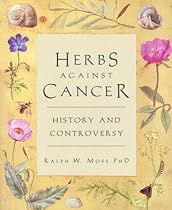 Bth C£ntury BC, (9y) Hemlock poisoning is still fairly common in some parts of the world (such as rural Turkey), where enthusiasm for medicinal herbs sometimes outruns knowledge (309). I have heard of such accidents in Maine in recent years.
Socrates and Hemlock
There is some dispute over the identification of the "pharmakon" which killed Socrates, Most scholars believe it is Conium maculatum, since like the Athenian potion it too kills without convulsions. Bth C£ntury BC, (9y) Hemlock poisoning is still fairly common in some parts of the world (such as rural Turkey), where enthusiasm for medicinal herbs sometimes outruns knowledge (309). I have heard of such accidents in Maine in recent years.
Socrates and Hemlock
There is some dispute over the identification of the "pharmakon" which killed Socrates, Most scholars believe it is Conium maculatum, since like the Athenian potion it too kills without convulsions. |
Sheldon Saul Hendler
See book keywords and concepts |
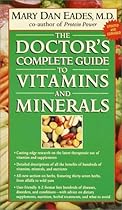 Active bioflavonoids from ginkgo and other medicinal herbs are discussed in another section of this book.
Bioflavonoids are being used in other countries for the treatment of various medical problems. Troxerutin, related chemically to rutin, for example, is used for the treatment of varicose veins, hemorrhoids, night cramps and other circulatory problems. It is supposed to work by reducing capillary fragility and by increasing tissue oxygenation. There are many anecdotal reports of its efficacy, but still little in the way of clinical studies. Active bioflavonoids from ginkgo and other medicinal herbs are discussed in another section of this book.
Bioflavonoids are being used in other countries for the treatment of various medical problems. Troxerutin, related chemically to rutin, for example, is used for the treatment of varicose veins, hemorrhoids, night cramps and other circulatory problems. It is supposed to work by reducing capillary fragility and by increasing tissue oxygenation. There are many anecdotal reports of its efficacy, but still little in the way of clinical studies. |
| These include the most important nucleic acids and their derivatives, lipids and their derivatives, all of the significant medicinal herbs, a variety of miscellaneous food supplements and a number of often exciting "biologicals," pharmaceuticals and other potentially therapeutic chemicals which are, increasingly, being used as adjuncts in nutritional and alternative therapies.
This book combines information in one place that was, previously, available, if at all, only in diverse texts and research papers. It is a compilation and analysis of the most exciting "medicine" of our time. |
| The medical and scientific communities have, until recently, generally been negative about medicinal herbs and, in most cases, with good reason. Folk medicines which use herbs are based almost exclusively on anecdotal observations. The effectiveness of herbal remedies has seldom been proven via adequately controlled scientific trials. And in many cases, we have better medications today to treat conditions previously treated only by herbs. In addition, there is tremendous variability in the potency and quantity of the active ingredients found in different samples of herbs. |
Textbook of Natural Medicine 2nd Edition Volume 1Michael T. Murray, ND
See book keywords and concepts |
| Handbook of medicinal herbs. Boca Raton, Fl: CRC Press. 1985: p 118
2. Bohlmann F, Zdero C. Sesquiterpene lactones and other constituents from Tanacetum parthenium. Phytochemistry 1982; 21:2543-2549
3. Makheja AM, Bailey JM. A platelet phospholipase inhibitor from the medicinal herb feverfew (Tanacetum parthenium). Prostagland Leukotri Med 1982; 8: 653-660
4. Heptinstall S, White A, Williamson L, Mitchell JRA. Extracts of feverfew inhibit granule secretion in blood platelets and polymorphonuclear leukocytes. Lancet 1985; i: 1071-1074
5. Barsby RWJ, Salan TJ, Knight BW, Hoult JRS. |
| Handbook of medicinal herbs. Boca Raton, FL: CRC Press. 1985: p 337-338
4. Baranov Al. Medicinal uses of ginseng and related plants in the Soviet Union. Recent trends in the Soviet literature. J Ethnopharmacol 1982; 6: 339-353
5. Brekhman II, Dardymov IV. New substances of plant origin which increase nonspecific resistance. Ann Rev Pharmacol 1969; 9: 419-430
6. Brekhman II, Dardymov IV. Pharmacological investigation of glycosides from ginseng and Eleutherococcus. Lloydia 1969; 32: 46-51
7. Brekhman II, Kirillov OI. Effect of Eleutherococcus on alarm-phase of stress. 1969; 8: 113-121
8. |
| Phytoestrogen effects
Plant estrogenic substances or phytoestrogens are components of many medicinal herbs with an historic use in conditions which are now treated by synthetic estrogens. Chinese and Japanese angelica contain highly active phytoestrogens, although these compounds are much lower in activity than animal estrogens (1:400 as active). This helps to explain why angelica was used in both excessive and deficient estrogen conditions. Phytoestrogens demonstrate an alterative effect by competing with estrogen for binding sites. |
Rebecca Wood
See book keywords and concepts |
 A third choice is to visit a qualified Ayurvedic practitioner who will assess your elemental type plus provide a diagnosis, medicinal herbs, and a recommended treatment plan. Note: some people are a combination of types, and one's type(s) may vary over time or even with the season.
These guidelines are just that—guidelines. They are not law. Please bypass them when you choose but then pay attention to how you feel emotionally, mentally, and physically. Better yet, when hungry for a food from the "not recommended" category balance it with other ingredients or dishes that better suit your type. A third choice is to visit a qualified Ayurvedic practitioner who will assess your elemental type plus provide a diagnosis, medicinal herbs, and a recommended treatment plan. Note: some people are a combination of types, and one's type(s) may vary over time or even with the season.
These guidelines are just that—guidelines. They are not law. Please bypass them when you choose but then pay attention to how you feel emotionally, mentally, and physically. Better yet, when hungry for a food from the "not recommended" category balance it with other ingredients or dishes that better suit your type. |
Berkeley Holistic Health Center and Shepherd Bliss
See book keywords and concepts |
| Shandor has written several articles on T'ai Chi and natural healing, and co-authored a book on growing and using medicinal herbs, published by Rodale Press in 1984. Currently a student at the National College of Naturopathic Medicine, Shandor is also director of Arura Institute of Buddhist Medicine. f1
The Growing Legitimacy of Holism
INTRODUCTION: by Shepherd Bliss
"To BE TRULY holistic, all parties must win: the business, the customer, the employees, the community, and the environment," says Carol Carpenter in the article which begins this section. |
Ralph W. Moss PhD
See book keywords and concepts |
 The number of deaths that occur because of the deliberate intake of medicinal herbs is very small. However, shocking revelations about pharmaceuticals do not give herbalists a free ride. They, too, have to take responsibility for any adverse effects from their products.
Remember too that untoward or idiosyncratic reactions can and do occur and cause considerable suffering. I remember the sight of a good friend of mine—an ardent advocate of alternative medicine—who smeared tea tree oil on his feet to kill athlete's foot. The number of deaths that occur because of the deliberate intake of medicinal herbs is very small. However, shocking revelations about pharmaceuticals do not give herbalists a free ride. They, too, have to take responsibility for any adverse effects from their products.
Remember too that untoward or idiosyncratic reactions can and do occur and cause considerable suffering. I remember the sight of a good friend of mine—an ardent advocate of alternative medicine—who smeared tea tree oil on his feet to kill athlete's foot. |
Gary Null
See book keywords and concepts |
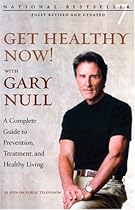 In many patient care situations, if medicinal herbs were used, there would be little or no side effects.
PARI THREE and Psychological Well-Being
We have been led to believe that we are a nation with a mental illness epidemic. The National Institute of Mental Health estimates that more than 40 million Americans may be suffering from mental and emotional problems severe enough to restrict or limit the quality of their lives. In many patient care situations, if medicinal herbs were used, there would be little or no side effects.
PARI THREE and Psychological Well-Being
We have been led to believe that we are a nation with a mental illness epidemic. The National Institute of Mental Health estimates that more than 40 million Americans may be suffering from mental and emotional problems severe enough to restrict or limit the quality of their lives. |
| This brings up the point that people are used to thinking of medicinal herbs as being completely free of side effect, but this is simply not true. Only tonic herbs are clear of adverse reactions.
There are further costs. Pygeum is taken from areas in Africa where the environment has been weakened by industrial farming. Besides, people who are politically conscious about how they spend their consumer dollars may not want to support some of the things going on where these plants are harvested. |
| We have become detached from the botanical basis of health care and the medicinal herbs which are the natural agents of our immunity.
The body's ancient natural response to herbs is evident to anyone who has grown them. The aroma of specific herbs brings a unique and clear reaction. Anyone with any familiarity with herb gardening would never mistake thyme for oregano or oregano for rosemary, even with their eyes closed. The recent development of aromatherapy is a recognition of the power of our genetic memory of certain herbal substances, which even responds to just the smell of them. |
Velma J. Keith and Monteen Gordon
See book keywords and concepts |
| The bitter tasting herbs are usually the medicinal herbs. These are used in times of illness or to correct certain problems. Learn about these herbs so you will have confidence in using them.
HOW HERBS WORK IN YOUR BODY
Why Herbs? Herbs have these functions in the body; they:
1. Cleanse the body.
2. Regulate the system (body glands and functions).
1
3. Are nutritional.
4. Raise the energy level of the body.
5. Stimulate the body's immune system.
1. Cleanse the Body
The body was built with safeguards and healing powers within it. |
Mark Bricklin
See book keywords and concepts |
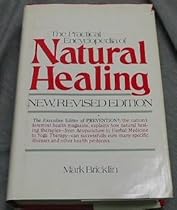 Comfrey
Three thousand years ago, the Greeks in their wisdom were using comfrey, and it wasn't long before it was entered into the very earliest catalogs of medicinal herbs.
Three hundred years ago, the great Elizabethan herbalist Nicholas Culpeper listed comfrey among the most effective natural healing agents.
About three years ago, a women in Veneta, Oregon, decided to apply a comfrey dressing to painful varicose veins that had troubled her for 13 years, threatening to immobilize her. Where countless doctors and remedies had failed, the herb succeeded. Comfrey
Three thousand years ago, the Greeks in their wisdom were using comfrey, and it wasn't long before it was entered into the very earliest catalogs of medicinal herbs.
Three hundred years ago, the great Elizabethan herbalist Nicholas Culpeper listed comfrey among the most effective natural healing agents.
About three years ago, a women in Veneta, Oregon, decided to apply a comfrey dressing to painful varicose veins that had troubled her for 13 years, threatening to immobilize her. Where countless doctors and remedies had failed, the herb succeeded. |
Joe Graedon and Teresa Graedon
See book keywords and concepts |
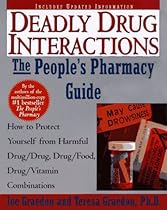 Like many other medicinal herbs, it has recently enjoyed a strong revival of interest. Some people recommend it for the prevention of migraine headaches, and there is research to indicate it is more effective for this purpose than a placebo.12 There are worrisome reports of a rebound syndrome in those who stop feverfew suddenly, however, and an interaction with anticoagulants such as Coumadin is suspected, although it hasn't been studied.
Ubiquinone (Coenzyme Q10)
CoQ10 as it is sometimes called, is not an herb, but it is sold in health food stores as a nutrient. Like many other medicinal herbs, it has recently enjoyed a strong revival of interest. Some people recommend it for the prevention of migraine headaches, and there is research to indicate it is more effective for this purpose than a placebo.12 There are worrisome reports of a rebound syndrome in those who stop feverfew suddenly, however, and an interaction with anticoagulants such as Coumadin is suspected, although it hasn't been studied.
Ubiquinone (Coenzyme Q10)
CoQ10 as it is sometimes called, is not an herb, but it is sold in health food stores as a nutrient. |
Schuyler W. Lininger, Jr. DC
See book keywords and concepts |
 Generally they are given as teas to further increase water intake as well as deliver the medicinal herbs.
Checklist for Calcium Oxalate Kidney Stones
Nutritional
Ranking
Supplements
Herbs
Primary
Magnesium citrate/ potassium citrate
Vitamin B6 (p. 340)
(in the presence of elevated urinary oxalate)
Secondary
Vitamin B6 (p. 340)
(in the absence of elevated urinary oxalate)
Other
Calcium (p. 277)
Asparagus root
Chondroitin sulfate
Birch leaf
(p. 281)
Couch grass
Fiber (p. 293)
Goldenrod
Glucosamine sulfate
Horsetail (p. 436)
(p. Generally they are given as teas to further increase water intake as well as deliver the medicinal herbs.
Checklist for Calcium Oxalate Kidney Stones
Nutritional
Ranking
Supplements
Herbs
Primary
Magnesium citrate/ potassium citrate
Vitamin B6 (p. 340)
(in the presence of elevated urinary oxalate)
Secondary
Vitamin B6 (p. 340)
(in the absence of elevated urinary oxalate)
Other
Calcium (p. 277)
Asparagus root
Chondroitin sulfate
Birch leaf
(p. 281)
Couch grass
Fiber (p. 293)
Goldenrod
Glucosamine sulfate
Horsetail (p. 436)
(p. |
Berkeley Holistic Health Center and Shepherd Bliss
See book keywords and concepts |
| Such integration doesn't happen overnight, so it's no wonder that the earliest treatise on medicinal herbs was written in China 5,000 years ago.
The most famous of Chinese herbs are ginseng, ma huang, and ginger. Ginseng, panax ginseng, is the fabled herb of immortality, used by the Chinese as a panacea for many different ailments. Modern research has demonstrated that ginseng helps the body adapt to stress. Ginseng is a tonic for the endocrine glands and is soothing to the digestive system. |
David Heber, M.D., Ph.D.
See book keywords and concepts |
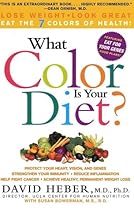 Many other species have been used as medicinal herbs. Parsley plants grow slowly, so they should be weeded carefully until established.
Parsley reaches to a height of about twelve to sixteen inches, and grow well indoors and out. There are two varieties of parsley: curly-leafed and flat-leafed. Flat-leafed parsley has the stronger flavor. Use parsley as a garnish and as a flavoring for sauces and soups. Parsley is a rich source of vitamin C, and can be used to cover up the flavor of garlic. Parsley oil is sold in capsules as a treatment for bad breath after meals. Many other species have been used as medicinal herbs. Parsley plants grow slowly, so they should be weeded carefully until established.
Parsley reaches to a height of about twelve to sixteen inches, and grow well indoors and out. There are two varieties of parsley: curly-leafed and flat-leafed. Flat-leafed parsley has the stronger flavor. Use parsley as a garnish and as a flavoring for sauces and soups. Parsley is a rich source of vitamin C, and can be used to cover up the flavor of garlic. Parsley oil is sold in capsules as a treatment for bad breath after meals. |
Kenny Ausubel
See book keywords and concepts |
 CRC Handbook of medicinal herbs?1,
Francis Brinker adds that the Eclectics prized red clover as an excellent alterative. "It was said unquestionably to retard the growth of cancer when administered internally for a prolonged period and was given freely to those with a tendency toward getting cancer."34
BURDOCK ROOT
Duke considers burdock, Arctium lappa, an especially distinguished Hoxsey ingredient for its strong immune-boosting properties. CRC Handbook of medicinal herbs?1,
Francis Brinker adds that the Eclectics prized red clover as an excellent alterative. "It was said unquestionably to retard the growth of cancer when administered internally for a prolonged period and was given freely to those with a tendency toward getting cancer."34
BURDOCK ROOT
Duke considers burdock, Arctium lappa, an especially distinguished Hoxsey ingredient for its strong immune-boosting properties. |
| Throughout history, herbs have served as a primary tool for healing. medicinal herbs have been found with the remains of Neanderthal humans dating back 60,000 years. Pollen from eight flowers and branches spread at their graves in a cave in Iraq was identified as originating from eight different species, seven of which are still used as traditional herbal medicines by the local residents. |
Ralph W. Moss PhD
See book keywords and concepts |
 At that time the issues of safety and efficacy of medicinal herbs were intensively discussed.
It is my hope that this book, and its forthcoming companion volume, will help provide "up-to-date and authoritative information" on the benefits and deficits of using herbs in the treatment of cancer.
In America, there is no question that medical herbalism is undergoing an
1 n astonishing resurgence. The signs of vital growth are everywhere. At that time the issues of safety and efficacy of medicinal herbs were intensively discussed.
It is my hope that this book, and its forthcoming companion volume, will help provide "up-to-date and authoritative information" on the benefits and deficits of using herbs in the treatment of cancer.
In America, there is no question that medical herbalism is undergoing an
1 n astonishing resurgence. The signs of vital growth are everywhere. |
Kenny Ausubel
See book keywords and concepts |
 An estimated sixty million Americans are now using medicinal herbs in a market exceeding $4 billion, characterized by an annual 35 to 40 percent growth rate.3 The aggregate stock value of publicly held herb companies went up 44 percent in 1997, the highest of any category except top-performing high-technology stocks.
Herbal growth rates are rising fastest in mass-market outlets such as Target, Kmart, and goliath Wal-Mart, which now produces its own herbal line. Taking a stake are many large drug companies including Bayer, Warner-Lambert, and American Home Products. An estimated sixty million Americans are now using medicinal herbs in a market exceeding $4 billion, characterized by an annual 35 to 40 percent growth rate.3 The aggregate stock value of publicly held herb companies went up 44 percent in 1997, the highest of any category except top-performing high-technology stocks.
Herbal growth rates are rising fastest in mass-market outlets such as Target, Kmart, and goliath Wal-Mart, which now produces its own herbal line. Taking a stake are many large drug companies including Bayer, Warner-Lambert, and American Home Products. |












